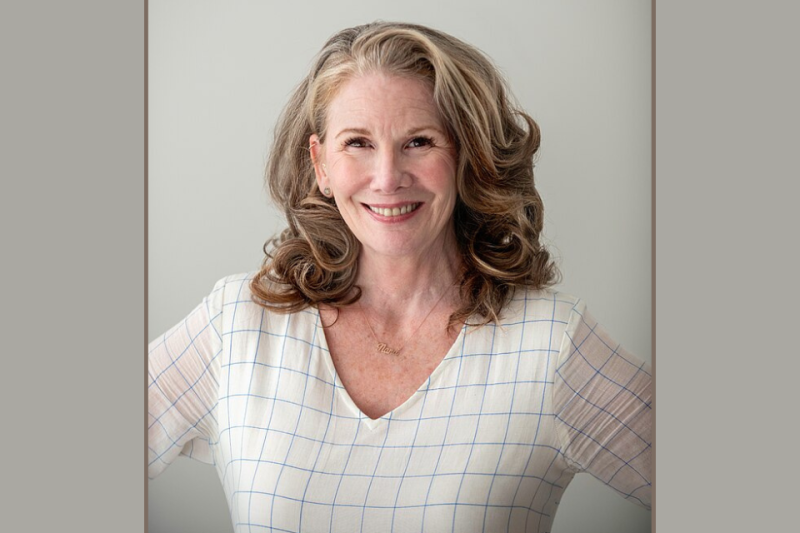
Throughout her life, actor Melissa Gilbert has recoiled at the sounds of gum chewing, chip crunching, nail tapping, and other everyday sounds—but she was well into adulthood before she discovered why she found these noises so distressing.
Gilbert has misophonia, a disorder characterized by unusually strong sensitivity and reactivity to a particular trigger sound, typically a noise made by other people, such as chewing, slurping, crunching, throat-clearing, and many others. People with misophonia can have intense automatic reactions—for example, anger, escape, or avoidance—that are significantly distressing and cause impairment in their lives.
Knowing she has misophonia helped Gilbert realize she wasn’t alone, and getting evidence-based treatment has given her effective coping tools and a sense of peace.
She recently partnered with Zach Rosenthal, PhD, associate professor in psychiatry and behavioral sciences and director of the Duke Center for Misophonia & Emotion Regulation, to promote awareness, provide hope, and invite people to help fund misophonia research and advocacy.
Rosenthal connected with her recently to learn more about her experience with misophonia. Watch the video and read the Q&A below to learn more.
What was your experience with misophonia like as a child?
Misophonia made me feel “other.” It made me feel afraid and isolated and, when triggered, angry. I also felt incredible guilt for what I considered “bad” thoughts.
How did it impact you then, as you grew up, and in adulthood?
My whole childhood and life, I felt like I was constantly on alert and was always waiting for the “attack,” for the moment someone would make a sound that would make me want to flee or scream.
What were your worst triggers growing up and in adulthood?
My worst triggers were and are open-mouthed chewing sounds. There are different levels of bad though. Gum chewing sounds are bad, but popping and snapping gum are worse. Loud chewing of food is bad, but chips of any kind and popcorn are agonizing. Nails tapping on a table and clicking pencils can be triggering and sometimes even finger snapping or hand clapping. The last one being a particularly interesting problem, considering I love being on stage.
When and how did you become aware that you had misophonia?
For most of my childhood and adolescence, I thought that I was just a bad person with bad thoughts. I felt like no one cared about me enough to stop making triggering sounds. The day I found out that what I have has a name, I sobbed. Not only did I feel better knowing I wasn’t out of my mind, I realized that I was not alone.
What are some strategies that have helped minimize your misophonia?
For me, absolutely and without doubt, cognitive behavioral therapy changed my life. The therapy gave me an incredible toolbox of coping mechanisms. Many of which I use nearly every day. I cannot begin to express how much more peaceful my life is since going through treatment. Misophonia doesn’t go away, but the therapy I did gave me the coping skills to better control my misophonia and not allow it to totally control me. There is great healing in being able to take charge of my misophonia.
What advice would you give others who suffer from misophonia—and/or to people whose friends, loved ones, colleagues, etc. have misophonia?
My advice would be to seek treatment right away. But, be very mindful. There are a lot of “snake oil” salespeople out there. Try to find a place and program with legitimate research and treatment at its core. The Duke Center for Misophonia and Emotion Regulation is that place.
How did you connect with the Duke Center for Misophonia & Emotion Regulation?
Like anybody else would, I Googled “misophonia treatments" online and dove deep into every recommendation I found. The most legitimate and comprehensive research and treatment I found was at Duke. I sent in emails and their director, Dr. Zach Rosenthal, reached back out to me. Together we found a therapist and I began treatment.
What prompted you to create and broadly share this video in partnership with the center?
I know I am not alone as a sufferer of misophonia but it is not a condition people talk about. So I am hoping to inspire other people with misophonia to seek help that will work. Even more importantly, I want people to know they are not alone. I know exactly how they feel. I know the fear, anxiety, and fury that come with misophonia and I know there is help. Real, true, life changing help.
What are your hopes for misophonia research and treatment?
My hope is that bringing awareness will help to fund more research and treatment. I feel that the work Duke has done thus far is just the tip of the iceberg.
Learn more about supporting Duke Psychiatry & Behavioral Sciences.